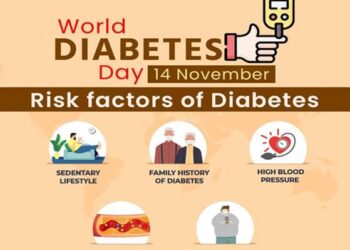According to a recent study, ultra-processed food (UPF) is associated with about 32 negative health outcomes, such as an increased risk of heart disease, cancer, type 2 diabetes, poor mental health, and early mortality.
The results, which were released in the BMJ, offer a thorough analysis of 45 meta-analyses including nearly 10 million individuals. According to the study, consuming a lot of highly processed food—mostly ready-to-eat or rapid foods—can lead to major health problems.
In the BMJ, the authors wrote, “Overall, direct associations were found between exposure to ultra-processed foods and 32 health parameters spanning mortality, cancer, and mental, respiratory, cardiovascular, gastrointestinal, and metabolic health outcomes.”
Researchers from several leading institutions, including Johns Hopkins Bloomberg School of Public Health in the US, the University of Sydney, Sorbonne University in France and Deakin University in Australia, suggested that diets high in ultra-processed foods may contain harmful elements that are a threat to your health.
They wrote that the more you are exposed to ultra-processed food it is associated with a higher risk of adverse health outcomes, especially cardiometabolic, common mental disorders and mortality outcomes.
The findings provide a “rationale to develop and evaluate the effectiveness of using population-based and public-health measures” to target and reduce the consumption of ultra-processed food and improve human health.
Foods that have undergone extensive industrial processing, such as packaged baked goods, snacks, carbonated drinks, sugary cereals, and ready-to-eat meals, frequently include coloring, flavorings, emulsifiers, and other additives. These items are low in vitamins and fiber and heavy in added sugar, fat, and salt.
Eating more ultra-processed foods increased the chance of type 2 diabetes development by 40%, obesity by 55%, sleep disturbances by 41%, and depression by 20%, according to research.
The study did find some evidence, though, linking UPF consumption to asthma, gastrointestinal health, and cardiometabolic risk factors like high blood lipids and low levels of “good” or HDL cholesterol.
Source:IT








 Finance
Finance








